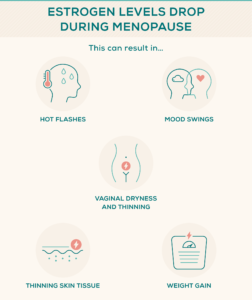Based on a study from Wellbeing of Women, almost 13 million people in the UK are either menopausal or in perimenopause right now, and a sizable portion of them are possibly considering having sex.
A common misconception about menopause is that it signifies the end of your sexual life.
Persist and remain resilient if you are a premenopausal or menopausal woman still acclimating to aspects like squirting.
To discover the ideal stimulation and accomplish that specific release, you and your partner may need to do some exploring, experimenting, and communicating.
What is squirting?
This sexual behavior, sometimes known as “female ejaculation,” has become more well-known due to the widespread consumption of pornography and the debate about its true nature.
From a physical perspective, it is the odorless, colorless fluid that is released from the vagina after an orgasm or other sexual stimulation.
You’ll learn to recognize the difference even though it sounds like getting wet. Some people describe it as gushing and that you can create a lot of liquid.

Some people are not able to do it, and even those who are may not be able to do it each time they have intercourse.
Although there hasn’t been much research on the subject, certain investigations have discovered that squirting fluids contains fluid from the bladder as well as the Skene’s Gland, two tiny ducts that are located on both sides of the urethra.
Different people squirt fluid in different ways, and some investigations have found traces of pee in the fluid that is released.
That does not imply, however, that you are happily urinating on your lover or yourself.In order to really comprehend this intriguing and, for many of us, extremely heated phenomenon, more scientific research is required.
What is menopause ?
Formally, menopause is pinpointed as the specific moment occurring twelve months after the cessation of the last menstrual cycle.
Preceding this milestone, the body undergoes a multitude of changes.
Primarily, hormonal fluctuations persist until the eventual decline of the key female sex hormones, progesterone, and estrogen.
Post-menopause, these hormones are no longer essential for overseeing reproductive functions such as ovulation and preparing the uterus for pregnancy.
As per the American College of Obstetricians and Gynecologists, shifts in estrogen levels can prompt various modifications in the vaginal environment.
Vaginal lubrication may dry up and the walls may become less elastic and thick.
What does it mean when a woman squirts?
When a woman squirts, it generally indicates that she is having a strong, enjoyable orgasm that causes the bladder to fill with fluid and also releases some fluid from the Skene’s glands.
In fact, because of altered hormone levels and heightened sexual confidence following menopause, many women report having more powerful and frequent orgasms.

Hence, don’t listen to anyone who suggests that you should stop enjoying yourself sexually.
Let us clarify a few myths first.
It’s a common misconception that squirting is equivalent to urinating, however, that is untrue.
Your Skene’s glands, which are situated close to the G-spot, produce a mixture of fluids, including urine, when you squirt.
Every person experiences menopause differently, and it might be accompanied by a number of variables that could limit your ability to squirt.
If nothing works, think about speaking with your doctor, other healthcare practitioners, or a sexual health specialist in private.
Can you squirt after menopause?
Menopause-related hormonal changes may cause a reduction in natural lubrication, which may result in a dry vagina, however, some women may still be able to squirt.

A number of factors may be involved, including your general health, the drugs you take now, your stress level, and the effect of hormonal fluctuations on the delicate vaginal tissues.
If nothing works, think about speaking with your doctor, another healthcare practitioner, or a sexual health expert in private.
Although there isn’t anything to support the theory that being hydrated can cause squirting, it is not harmful to consume plenty of liquids. Keep an eye on your fluid intake, but don’t forget to monitor your caffeine intake.
Caffeine might aggravate your urinary tract, making UTIs more likely to occur after menopause. Attempt to replace your latte with a low-sugar squash, decaf coffee, or herbal or fruit tea.
Don’t forget to place a towel down or buy a sex blanket (yes, they exist!) that is intended to absorb liquids.

